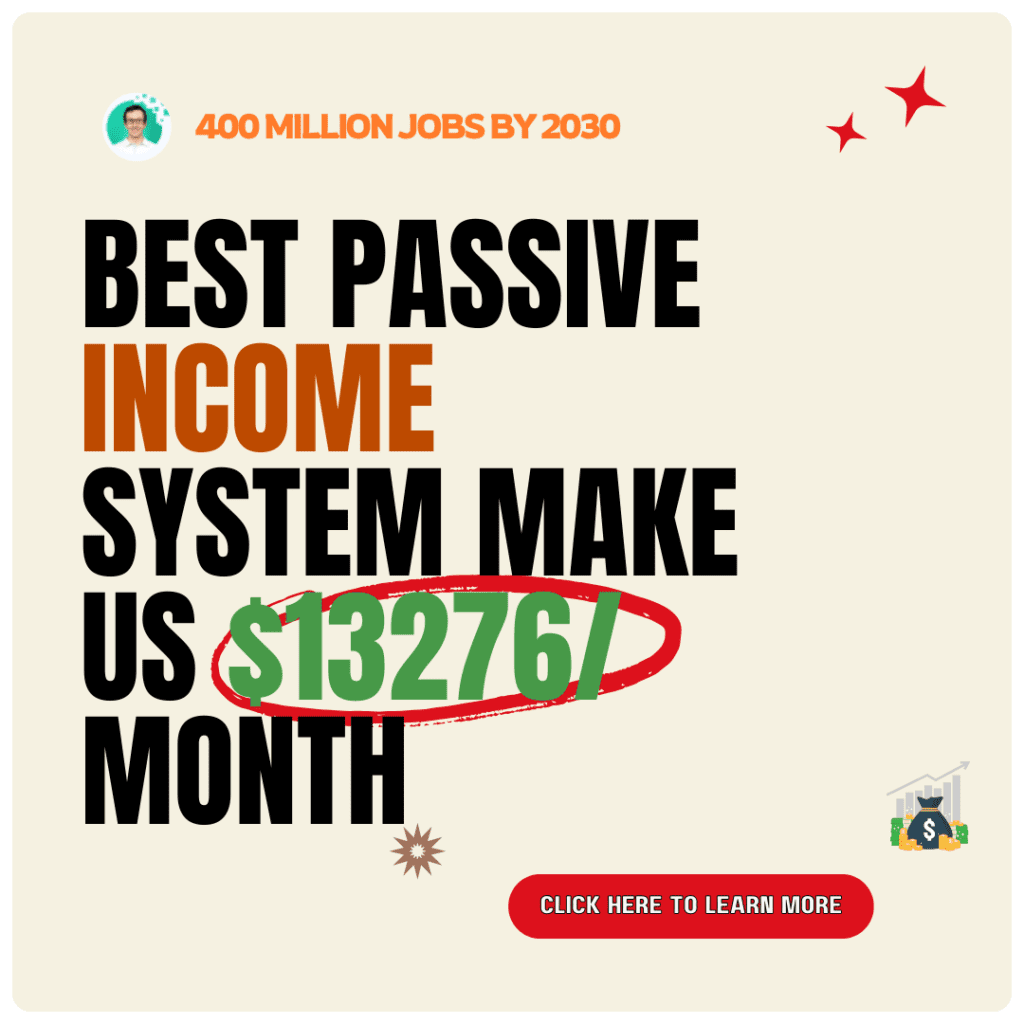From Corporate to Freelance: How to Make the Career Transition and Thrive
The standard 9–5 corporate grind is no longer the only route to a successful career in the dynamic workplace of today.People are embracing the liberated world of freelancing and eschewing the confines of regular work in increasing numbers.
It may be thrilling and intimidating to go from a disciplined corporate setting to the unexplored seas of freelancing. It takes thorough preparation, an honest evaluation of oneself, and a leap of faith. However, do not worry! This blog acts as your manual, arming you with the knowledge and skills need to successfully negotiate this seismic career change and flourish as a freelancer.

From assessing your unique skills and passions to crafting a compelling personal brand, we’ll delve into the essential steps of preparing for this momentous change. We’ll explore the financial aspects of freelancing and how to make a smooth entry into various freelance marketplaces. Additionally, we’ll reveal the secrets of marketing yourself effectively and building a steady client base.
Join us on this trip from corporate to freelance, and let’s set off on the road to a more full and gratifying profession, if you’re ready to open the door to a world of freedom and creativity.
My Best Recommended & Proven Way to Make $100 Daily – Watch THIS FREE Training to START >>
1. Assessing Your Skills and Passion
Think about yourself for a minute before stepping into the realm of freelancing. Find your genuine interests by evaluating the important talents you have acquired over your time working in the business world. Find out what transferrable abilities you have to offer, and consider how combining your interests and skills might provide a solid basis for a successful freelancing career.
2. Building Your Freelance Brand
In the competitive freelance arena, your personal brand is the key to standing out. Craft a unique selling proposition (USP) that highlights your strengths and resonates with your target audience. Create an impressive portfolio showcasing your best work and design a professional website that leaves a lasting impression. Leverage social media and networking to amplify your brand presence and establish your freelance identity.
3. Financial Preparation
Transitioning to freelance demands careful financial planning. Assess your current financial situation and create a budget that encompasses personal and business expenses. Building an emergency fund helps weather income fluctuations. Consider starting freelancing as a side gig before taking the plunge full-time. Solid financial preparation ensures a smoother transition and sets the stage for long-term success.
4. Navigating the Freelance Marketplaces
Freelance platforms offer a gateway to a vast pool of potential clients. Research and select platforms aligning with your niche. Set competitive yet reasonable rates to attract clients while valuing your expertise. Cultivate a strong profile with client reviews to boost credibility. Understand the pros and cons of each platform to make informed choices and thrive in the freelance market.
5. Finding Clients and Marketing Yourself
Securing clients is vital for a successful freelance career. Network and tap into existing connections to gain referrals and leads. Employ content marketing and SEO techniques to widen your reach and showcase expertise. Craft personalized and compelling proposals that demonstrate value to potential clients. Master the art of self-promotion to carve your niche and attract a steady stream of projects.
6. Thriving as a Freelancer
Thriving as a freelancer requires efficient time management and setting clear boundaries between work and personal life. Stay resilient in the face of challenges, such as late payments and demanding clients. Invest in continuous professional development to enhance your skills and stay ahead of the curve. Embrace a healthy work-life balance and nurture a flourishing freelance career with passion and perseverance.
My Best Recommended & Proven Way to Make $100 Daily – Watch THIS FREE Training to START >>
Assessing Your Skills and Passion
Before embarking on the exhilarating journey from corporate to freelance, taking a comprehensive inventory of your skills and passions is paramount. Here are some essential tips to guide you through this introspective process:
- Honest Self-Evaluation: Assess your corporate experience objectively. Identify skills you excel at and recognize areas for improvement. This candid evaluation forms the foundation of your freelancing venture.
- Identify Transferable Skills: Recognize the skills acquired in the corporate world that seamlessly translate into the freelance domain. Leveraging these transferable skills will give you a competitive edge.
- Explore Your Passions: Delve into your interests and passions beyond the confines of your previous job. Unearth what truly excites and motivates you, as it will be the driving force in your freelance pursuit.
- Niche Selection: Merge your skills and passions to identify potential freelance niches. Finding an area where your expertise aligns with your passions will ignite your passion and enhance job satisfaction.
- Seek Feedback: Consult mentors, colleagues, or friends to gain valuable external perspectives on your strengths and areas of expertise. Constructive feedback can reveal hidden talents or unique angles to explore.
- Trial Projects: Consider taking up small freelance projects or gigs to test the waters before diving in full-time. These trial projects allow you to gauge your fit in the freelance world and refine your approach.
- Embrace Continuous Learning: Commit to continuous learning and upskilling to remain relevant and adaptable in the ever-evolving freelance landscape.
By thoroughly assessing your skills and passions, you can confidently shape your freelancing career, making it a fulfilling and successful expedition into the world of freelancing.
Building Your Freelance Brand
In the vast and competitive realm of freelancing, a strong personal brand is your beacon to attract clients and carve your niche. Here are essential tips to help you craft a compelling freelance brand that leaves a lasting impact:
- Discover Your Unique Selling Proposition (USP): Identify what sets you apart from other freelancers. Pinpoint your distinctive skills, experiences, or approach that make you invaluable to clients.
- Showcase Your Best Work: Curate an impressive portfolio that showcases your finest projects and highlights your expertise. A well-presented portfolio acts as a compelling showcase of your capabilities.
- Design a Professional Website: Your website is your virtual storefront. Design a user-friendly and visually appealing website that reflects your brand identity and provides clients with essential information.
- Consistency is Key: Maintain brand consistency across all platforms, from your website to social media profiles. A cohesive brand identity builds trust and familiarity with potential clients.
- Leverage Social Media: Utilize social media platforms to amplify your brand presence. Share valuable content, engage with your audience, and establish yourself as an authority in your niche.
- Network and Collaborate: Forge connections with fellow freelancers, industry professionals, and potential clients. Collaborating on projects or participating in online communities can broaden your network.
- Deliver Excellence: Your brand reputation is shaped by the quality of your work and the experience you provide to clients. Consistently delivering excellent results will earn you positive reviews and referrals.
- Stay Authentic: Be genuine and authentic in your interactions with clients and colleagues. People are drawn to authenticity, and it helps build lasting relationships.
By focusing on building a unique and cohesive freelance brand, you’ll position yourself as a sought-after professional in your field, attracting clients who resonate with your values and offerings. A compelling brand presence will elevate your freelancing career to new heights of success and recognition.
Financial Preparation
Embarking on a freelance career requires diligent financial preparation to navigate the potential income fluctuations and ensure a stable foundation. Here are some crucial advice for preserving your financial stability while you enter the world of freelancing:
- Make a Budget: Come up with a thorough budget that covers both personal and professional costs. Having a clear overview of your financial obligations will help you set realistic income goals.
- Emergency Fund: Build an emergency fund to cushion any unexpected financial challenges that may arise during lean months or in times of crisis.
- Debt Management: Prioritize clearing high-interest debts from your corporate days to reduce financial burdens and minimize interest payments.
- Set Freelance Rates Strategically: Determine your freelance rates based on industry standards, your skill level, and the value you offer to clients. Avoid underpricing your services.
- Invoice and Payment Terms: Establish a system for invoicing clients promptly and set clear payment terms to ensure timely and consistent payments.
- Separate Personal and Business Finances: Open a separate business account to maintain financial clarity and organization.
- Invest in Professional Development: Allocate funds for continuous learning and upskilling to enhance your services and remain competitive in the freelance market.
By following these essential financial tips, you can lay a strong financial foundation and confidently embrace the world of freelancing, knowing you have prepared yourself for both the challenges and triumphs that lie ahead.
My Best Recommended & Proven Way to Make $100 Daily – Watch THIS FREE Training to START >>
Navigating the Freelance Marketplaces
Freelance marketplaces have become bustling hubs, connecting skilled professionals with clients seeking their expertise. However, succeeding in this competitive ecosystem requires a strategic approach. Here are key tips to help you navigate the freelance marketplaces with confidence and secure rewarding opportunities:
- Optimize Your Profile: Craft a compelling and well-optimized profile that highlights your skills, experience, and unique selling points. A strong profile is your gateway to attracting potential clients.
- Choose the Right Platforms: Select reputable freelance marketplaces that align with your niche and target audience. Research the platforms to understand their rules, fees, and user base.
- Craft an Outstanding Proposal: Tailor each proposal to showcase your understanding of the client’s needs and how your skills perfectly align with their requirements.
- Competitive Pricing: Strike a balance between pricing competitively and valuing your expertise. Offer transparent pricing while emphasizing the value you bring to the table.
- Build Positive Reviews: Deliver exceptional work to early clients and request honest feedback. Positive reviews will boost your credibility and attract more clients.
- Consistent Communication: Respond promptly to client inquiries and maintain open communication throughout the project. Professionalism and reliability will set you apart.
- Expand Your Network: Engage with other freelancers and potential clients on the platform. Participate in relevant discussions, collaborate, and build meaningful connections.
By adhering to these key tips, you can navigate the freelance marketplaces effectively, stand out among the competition, and secure a steady stream of rewarding projects that propel your freelance career to new heights.
Finding Clients and Marketing Yourself
As a freelancer, finding clients and effectively marketing yourself is essential for a thriving career. In the vast and competitive digital landscape, it’s crucial to stand out and connect with potential clients. Here are key tips to help you find clients and market yourself successfully:
- Define Your Target Audience: Identify your ideal clients based on your skills and niche. Tailor your marketing efforts to address their specific needs and pain points.
- Leverage Social Media: Build a strong social media presence on platforms relevant to your industry. Share valuable content, engage with your audience, and showcase your expertise.
- Create a Professional Website: Establish a polished website that serves as your online portfolio. Highlight your best work, testimonials, and a clear call-to-action for potential clients.
- Utilize Content Marketing: Produce informative blog posts, videos, or podcasts that demonstrate your knowledge and provide value to your target audience.
- Networking and Referrals: Attend industry events, join online communities, and nurture professional relationships to gain referrals and expand your client base.
- Offer Free Workshops or Webinars: Host webinars or workshops to showcase your expertise and establish yourself as an authority in your field.
- Guest Posting and Collaborations: Contribute guest posts to well-established blogs or collaborate with influencers in your industry to extend your reach and credibility.
By implementing these key tips, you’ll effectively find and attract clients while showcasing your expertise. As you consistently invest in marketing yourself, you’ll build a reputable brand and enjoy a steady flow of clients eager to work with you.
Thriving as a Freelancer
Transitioning from the corporate world to freelancing opens up a world of opportunities for professional growth and personal fulfillment. However, thriving as a freelancer requires more than just survival; it demands a strategic approach to establish yourself as a successful and sought-after independent professional. Here are key tips to help you flourish as a freelancer:
- Consistent Excellence: Deliver exceptional work on every project, ensuring that each client experience surpasses expectations. Satisfied clients are more likely to return and refer you to others.
- Time Management and Productivity: Create a well-structured schedule to maximize productivity while maintaining a healthy work-life balance. Effective time management is essential for meeting deadlines and taking on additional projects.
- Continuous Learning: Embrace a growth mindset by investing in continuous learning and upskilling. Stay updated with industry trends, tools, and techniques to stay competitive and relevant.
- Financial Planning: Manage your finances wisely by setting aside funds for taxes, savings, and business expansion. A stable financial plan safeguards your career against potential financial setbacks.
- Networking and Collaboration: Engage with fellow freelancers, industry peers, and potential clients through networking events and online communities. Collaborations can lead to exciting projects and valuable insights.
- Seek Feedback and Adapt: Welcome constructive feedback from clients and use it to improve your services continually. Adapt to changing market demands and client preferences to stay ahead of the curve.
- Nurture Your Well-Being: Prioritize self-care and mental well-being to sustain long-term success. Taking breaks and managing stress contributes to your overall happiness and productivity.
By integrating these key tips into your freelance journey, you can position yourself for lasting success and fulfillment. Remember that thriving as a freelancer is an ongoing process, and with determination, adaptability, and a commitment to excellence, you can unlock your full potential in the ever-evolving world of freelancing.
Conclusion
Transitioning from a corporate career to the world of freelancing is a bold and empowering move that offers endless possibilities for personal growth and professional fulfillment. As we conclude this journey exploring the nuances of becoming a successful freelancer, it is evident that thriving in this dynamic landscape requires a combination of passion, preparation, and perseverance.
By assessing your skills, passion, and readiness for freelancing, you lay the foundation for a fulfilling career aligned with your true calling. Building a strong freelance profile, networking strategically, and marketing yourself effectively are vital steps to attracting clients and creating a reputable brand in the competitive freelance marketplaces.
Financial preparedness and time management play pivotal roles in sustaining your freelance venture, ensuring financial stability while optimizing productivity. Staying ahead of the curve and sustaining long-term success require embracing continual learning, soliciting feedback, and taking care of your well-being.
Remember, freelancing is not without its challenges, but with determination and adaptability, you can transform obstacles into stepping stones. Cultivate a growth mindset, stay resilient, and approach each project with unwavering commitment to excellence.
Above all, relish the freedom to shape your own destiny and embrace the joys of pursuing projects that ignite your passion. The world of freelancing beckons with open arms, and armed with the knowledge from this guide, you’re now equipped to embark on a thriving freelance career filled with accomplishments, connections, and unparalleled satisfaction.
The journey may be both exhilarating and unpredictable, but with dedication, unwavering enthusiasm, and a spirit of continuous improvement, you have the power to shape a successful and gratifying freelance career that fulfills your aspirations beyond measure. Embrace the freedom, forge your path, and let your freelance journey be nothing short of extraordinary. Here’s to thriving as a freelancer and embracing the boundless opportunities that lie ahead!
My Best Recommended & Proven Way to Make $100 Daily – Watch THIS FREE Training to START >>
Thanks for reading my article on “From Corporate to Freelance: How to Make the Career Transition and Thrive“, hope it will help!














